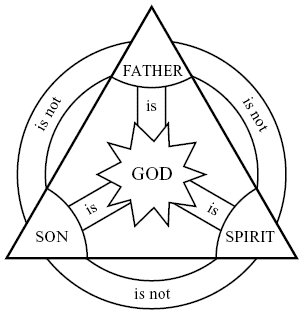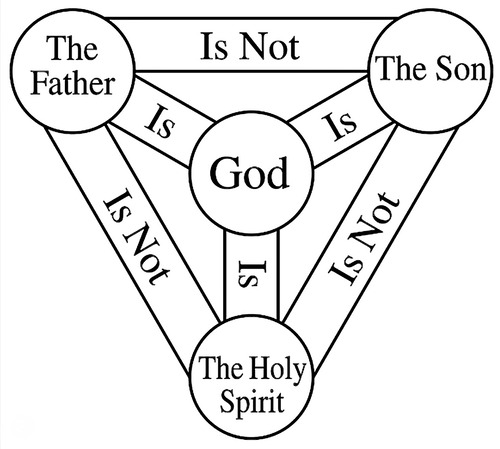Ephesians 1:13: Was the Spirit’s Indwelling Promised of Old?
When Paul declares believers are “sealed with the promised Holy Spirit” in Ephesians 1:13, one word jumps off the page: promised. This wasn’t a divine improvisation or a New Testament surprise. The Holy Spirit’s indwelling of believers was promised long before Pentecost—woven throughout the Old Testament like a golden thread leading to its ultimate fulfillment.
THE HEART SURGERY GOD ALWAYS PLANNED
Was the Spirit’s indwelling promised of old? Indeed and perhaps nowhere is this promise clearer than in Ezekiel’s stunning vision of spiritual transformation. God declares through the prophet: “I will give you a new heart and put a new spirit in you; I will remove from you your heart of stone and give you a heart of flesh. And I will put my Spirit in you and move you to follow my decrees” (Ezekiel 36:26-27).
This isn’t external religious reform—it’s internal spiritual revolution. God promises to plant His very Spirit within His people, creating not just behavioural change but heart transformation. The mechanism isn’t human effort but divine indwelling.
Jeremiah echoes this promise with his vision of the New Covenant: “I will put my law in their minds and write it on their hearts” (Jeremiah 31:33). How does God write His law on human hearts? Through His Spirit dwelling within, becoming the divine author of our spiritual lives. The stone tablets of Sinai give way to the fleshy tablets of transformed hearts.
THE GREAT DEMOCRATISATION
Moses once expressed a radical wish: “I wish all the Lord’s people were prophets and that the Lord would put his Spirit on them!” (Numbers 11:29). What seemed like an impossible dream back them became God’s definite plan.
Joel prophesied this democratic outpouring: “I will pour out my Spirit on all people. Your sons and daughters will prophesy, your old men will dream dreams, your young men will see visions. Even on my servants, both men and women, I will pour out my Spirit in those days” (Joel 2:28-29).
Notice the revolutionary scope: all people. Gender barriers, age distinctions, social hierarchies—all of these are swept away by the Spirit’s universal indwelling. When Peter quoted Joel at Pentecost (Acts 2:16-17), he wasn’t applying an obscure prophecy but announcing the fulfillment of God’s ancient promise.
THE SERVANT’S PATTERN
Isaiah reveals another dimension of this promise through the Messianic Servant: “The Spirit of the Sovereign Lord is on me, because the Lord has anointed me” (Isaiah 61:1). When Jesus read these words in the Nazareth synagogue and declared “Today this scripture is fulfilled in your hearing” (Luke 4:21), He wasn’t just claiming personal fulfillment—He was establishing the pattern for all His followers.
But Isaiah’s promise extends beyond the Servant to His people: “As for me, this is my covenant with them,” says the Lord. “My Spirit, who is on you, will not depart from you, or from your children, or from their children’s children—from this time on and forever” (Isaiah 59:21). The Spirit’s presence isn’t temporary or conditional—it’s permanent and generational.
THE TEMPLE THAT MOVES
Was the Spirit’s indwelling promised of old? Ezekiel’s temple vision provides perhaps the most vivid picture of the Spirit’s indwelling. The prophet sees God’s glory returning to fill the temple (Ezekiel 43:1-5), and later describes a river of life flowing from the temple’s threshold (Ezekiel 47:1-12).
Paul later reveals the stunning reality: “Do you not know that your bodies are temples of the Holy Spirit, who is in you?” (1 Corinthians 6:19). The temple is no longer a building in Jerusalem but believers themselves. The river of life flows not from a physical structure but from within Spirit-filled hearts, just as Jesus promised: “Whoever believes in me, as Scripture has said, rivers of living water will flow from within them” (John 7:38-39).
THE DAVIDIC CONNECTION
Even the Davidic covenant points toward the Spirit’s indwelling. God’s promise of an eternal kingdom through David’s line (2 Samuel 7:12-16) requires more than political power—it demands spiritual transformation. How do citizens of God’s eternal kingdom live? Through the indwelling Spirit who enables them to follow God’s ways from the heart.
ANCIENT PROMISE, PRESENT REALITY
Was the Spirit’s indwelling promised of old? The Old Testament doesn’t merely hint at the Spirit’s indwelling—it explicitly promises it. When Paul writes about being “sealed with the promised Holy Spirit,” he’s connecting New Testament believers to an ancient stream of divine commitment that flows through centuries of Scripture.
This wasn’t Plan B. The Spirit’s indwelling was always Plan A.
Ezekiel saw it: hearts of stone replaced by hearts of flesh, animated by God’s Spirit. Jeremiah envisioned it: God’s law written internally by divine hand. Joel prophesied it: the Spirit poured out on all flesh. Isaiah proclaimed it: the Spirit’s permanent residence with God’s people.
THE SEAL OF ANCIENT PROMISES
Understanding this Old Testament foundation transforms how we read Ephesians 1:13. When Paul speaks of being “sealed with the promised Holy Spirit,” he’s not announcing something new but something ancient finally fulfilled. The Spirit within you isn’t a New Testament innovation—it’s the realisation of promises made to Abraham, revealed to prophets, and sung by psalmists.
Your spiritual sealing rests on bedrock older than the mountains—the unchanging promises of God Himself. The Spirit’s indwelling isn’t God’s afterthought but His eternal intention, not a reaction to human failure but the fulfillment of divine love.
The next time we read about the “promised Holy Spirit,” let’s remember: the promise has roots that run deep into the soil of Scripture, connecting our present spiritual experience to God’s ancient, unshakeable word. What the prophets saw dimly, we experience daily. What they promised, we possess.
WAS THE SPIRIT’S INDWELLING PROMISED OF OLD? RELATED FAQS
Did Old Testament believers have the Holy Spirit indwelling them like New Testament believers? Reformed scholars like John Murray and Sinclair Ferguson distinguish between the Spirit’s work “upon” versus “within” believers. While Old Testament saints experienced the Spirit’s regenerating work, the permanent indwelling described in the New Testament represents a new covenant reality. The Spirit’s presence was more selective and often temporary in the Old Testament, contrasting with the universal and permanent indwelling promised to all New Testament believers.
- How do we reconcile Jesus saying the Spirit “lives with you and will be in you” (John 14:17) if the Spirit was already promised in the Old Testament? Contemporary Reformed theologian Michael Horton explains this as a progression from external to internal presence. The Spirit was “with” the disciples through Jesus’ earthly ministry, but the indwelling “in you” represents the fulfillment of Old Testament promises in a new, intensified way. This reflects the “already but not yet” nature of biblical prophecy—promised in the Old Testament, initiated at Pentecost, and continuing today.
- What’s the relationship between the Spirit’s indwelling and the doctrine of union with Christ? Theologians like JI Packer emphasise the Spirit’s indwelling is inseparable from our union with Christ. The Old Testament promises find their fulfillment not just in receiving the Spirit, but in being united to Christ through the Spirit. This means the ancient promises were always Christocentric, even when not explicitly stated.
How does the “sealing” metaphor in Ephesians 1:13 connect to Old Testament imagery? Biblical scholar Gordon Fee notes sealing in the ancient world indicated ownership, authenticity, and security. Old Testament passages like Haggai 2:23 use similar imagery of God’s chosen being His “signet ring.” The Spirit’s sealing fulfils these ancient ownership themes, marking believers as God’s authentic possession with permanent security.
- Were the Old Testament promises about the Spirit’s indwelling conditional or unconditional? Reformed covenant theologian Meredith Kline argues that while the Old Testament presents these promises within covenant contexts, they ultimately rest on God’s unconditional commitment to His people. The conditions (like circumcision of the heart) are fulfilled by God Himself through the Spirit’s work, making the promises both conditional in form but unconditional in divine execution.
- How do we understand the “timing” of prophetic fulfillment regarding the Spirit’s indwelling? Vern Poythress explains Old Testament prophecies often have multiple fulfillment layers. The Spirit’s indwelling promises had initial fulfilments (like during revival periods), inaugural fulfillment (at Pentecost), ongoing fulfillment (in church history), and ultimate fulfillment (in the new creation). This “telescoping” nature explains why the promises seem both ancient and future-oriented.
What role does the Trinity play in understanding Old Testament promises about the Spirit’s indwelling? Theologian Fred Sanders emphasises that while the Trinity isn’t fully revealed in the Old Testament, the promises about the Spirit’s indwelling implicitly involve all three persons. The Father makes the promise, the Son secures it through His work, and the Spirit applies it. This Trinitarian understanding helps explain why Old Testament promises about the Spirit always ultimately point to Christ and the Father’s plan.
WAS THE SPIRIT’S INDWELLING PROMISED OF OLD? OUR RELATED POST
- Is the Holy Spirit Present in Unbelievers? The Biblical Answer
- Before Pentecost: Did the Holy Spirit Indwell OT Believers?
- How Can I Be Sure I Have the Holy Spirit’s Indwelling?
- What Does it Mean to Grieve the Holy Spirit?
- Is the Holy Spirit God?
- The Inner Witness: How the Holy Spirit Assures Us of Sonship
- What Does It Mean to be Baptised in the Holy Spirit?
- When Words Fail: How the Holy Spirit Helps Us in Our Prayer
Editor's Pick

The Christian Sabbath: Why Did Sunday Replace Saturday?
Consider this: God-fearing Jews who’d faithfully observed Saturday Sabbath for over a thousand years suddenly began gathering for worship on [...]

Did the Early Christians Worship Jesus? The Biblical Evidence
It was a startling transformation: Jewish fishermen who'd spent three years following this itinerant carpenter from Nazareth now begin to [...]

If Jesus is Messiah, Why Aren’t ALL Messianic Prophecies Fulfilled?
If Jesus is truly the Messiah, why hasn't world peace arrived? Why do Jews still face persecution? Why isn't the [...]

When Courage Fails: Will I Be Forgiven If I Deny Christ in Persecution?
The rooster crowed, and Peter remembered. In that devastating moment, the apostle realised he’d just done the unthinkable—three times he’d [...]

What Makes a Godly Dad? 5 Biblical Principles Fathers Need
Modern culture sends fathers mixed messages. Be strong but sensitive. Be involved but not overbearing. Lead but don’t dominate. With [...]

What Makes a Godly Mom? A Scripture-Backed Guide
In our culture’s confusion about gender roles and parenting, the timeless question remains: what makes a godly mother? While secular [...]

Paul’s Mandate for Men: Headship Or Servant Leadership? Or Both?
Modern Christianity has fallen into a trap. We've created an either/or battle between "headship" and "servant leadership," as if these [...]

Should We Stop Using Male Pronouns for God? Why Do We Say No?
A friend of ours arrived eagerly at his first theology class in seminary. But he quickly discovered something troubling: the [...]

Did Old Testament Law Force Women to Marry their Rapists?
**Editor’s Note: This post is part of our series, ‘Satan’s Lies: Common Deceptions in the Church Today’… Viral misinformation abounds [...]

From Danvers To Nashville: Two Statements, One Biblical Vision
30 years separate the Danvers Statement on Biblical Manhood and Womanhood (1987) and the Nashville Statement on Human Sexuality (2017). [...]
SUPPORT US:
Feel the Holy Spirit's gentle nudge to partner with us?
Donate Online:
Account Name: TRUTHS TO DIE FOR FOUNDATION
Account Number: 10243565459
Bank IFSC: IDFB0043391
Bank Name: IDFC FIRST BANK






